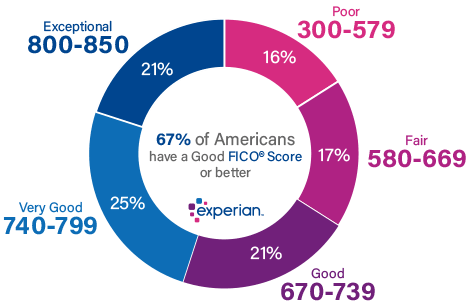When to Expect a Hard Credit Check
When to Expect a Soft Credit Check
When to Expect a Hard or Soft Credit Check

HARD CHECK
* Applying for a credit card
* Applying for a loan (personal, mortgage, car, business, etc.)
* Getting a cell phone contract
* Requesting a credit line increase

SOFT CHECK
* Loan and credit card pre-approval letters
* Checking your own credit score
* Employer background checks and other background checks
* Getting an insurance policy (life, renters, car, homeowners, etc.)

HARD OR SOFT CHECK
* Apartment rental applications
* Opening a checking or savings account
* Getting a cable or utility account
* Identity verification by financial institution
Unlike a hard credit inquiry a soft credit inquiry wont affect your FICO® Score.
What Is a Good FICO® Score?
FICO® creates different types of consumer credit scores. There are “base” FICO® Scores that the company makes for lenders in multiple industries to use, as well as industry-specific credit scores for credit card issuers and auto lenders.
The base FICO® Scores range from 300 to 850, and FICO defines the “good” range as 670 to 739. FICO®‘s industry-specific credit scores have a different range—250 to 900. However, the middle categories have the same groupings and a “good” industry-specific FICO® Score is still 670 to 739.


What Is a Good VantageScore?
VantageScore’s first two credit scoring models had ranges of 501 to 990. The two newest VantageScore credit scores (VantageScore 3.0 and 4.0) use a 300 to 850 range—the same as the base FICO® Scores. For the latest models, VantageScore defines 661 to 780 as its good range.
